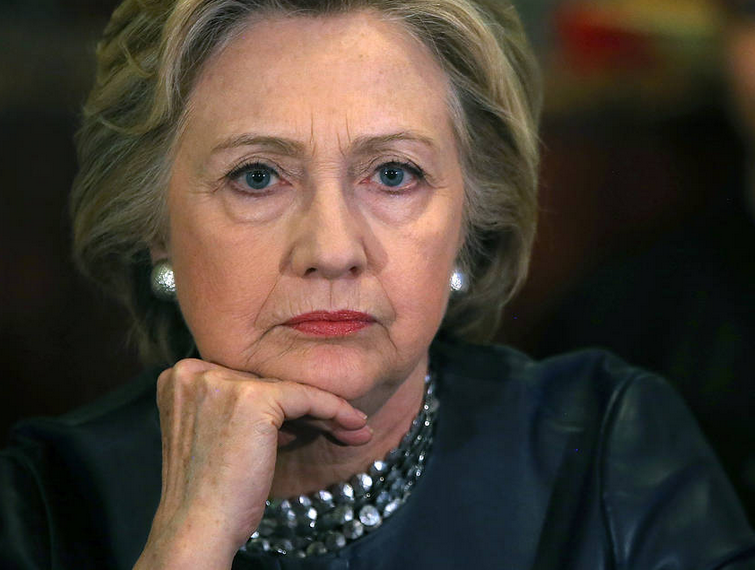A Sanders win in California would turbocharge the mounting Democratic unease about her viability.
There is now more than a theoretical chance that Hillary Clinton may not be the Democratic nominee for president.
How could that happen, given that her nomination has been considered a sure thing by virtually everyone in the media and in the party itself? Consider the possibilities.
The inevitability behind Mrs. Clinton’s nomination will be in large measure eviscerated if she loses the June 7 California primary to Bernie Sanders. That could well happen.
A recent PPIC poll shows Mrs. Clinton with a 2% lead over Mr. Sanders, and a Fox News survey found the same result. Even a narrow win would give him 250 pledged delegates or more—a significant boost. California is clearly trending to Mr. Sanders, and the experience in recent open primaries has been that the Vermont senator tends to underperform in pre-election surveys and over-perform on primary and caucus days, thanks to the participation of new registrants and young voters.
To this end, data from mid-May show that there were nearly 1.5 million newly registered Democratic voters in California since Jan. 1. That’s a 218% increase in Democratic voter registrations compared with the same period in 2012, a strongly encouraging sign for Mr. Sanders.
A Sanders win in California would powerfully underscore Mrs. Clinton’s weakness as a candidate in the general election. Democratic superdelegates—chosen by the party establishment and overwhelmingly backing Mrs. Clinton, 543-44—would seriously question whether they should continue to stand behind her candidacy.
There is every reason to believe that at the convention Mr. Sanders will offer a rules change requiring superdelegates to vote for the candidate who won their state’s primary or caucus. A vote on that proposed change would almost certainly occur—and it would function as a referendum on the Clinton candidacy. If Mr. Sanders wins California, Montana and North Dakota on Tuesday and stays competitive in New Jersey, he could well be within 200 pledged delegates of Mrs. Clinton, making a vote in favor of the rules change on superdelegates more likely.
Another problem: In recent weeks the perception that Mrs. Clinton would be the strongest candidate against Donald Trump has evaporated. The Real Clear Politics polling average has Mrs. Clinton in a statistical tie with Mr. Trump, and recent surveys from ABC News/Washington Post and Fox News show her two and three points behind him, respectively. Then there is that other crack in the argument for Mrs. Clinton’s inevitability: Bernie Sanders consistently runs stronger than she does against Mr. Trump nationally, beating him by about 10 points in a number of recent surveys.
The worries about Mr. Sanders’s strength have stirred the beginnings of a capitulation to him—by the Clinton camp, in league with the Democratic National Committee—at the convention. To placate him, they have already granted Mr. Sanders greater influence over the party platform. Two divisive figures, Cornel West and Rep. Keith Ellison, have been added to the platform committee, ensuring that the party will be pulled further left. In addition to putting Mr. Sanders’s socialist nostrums on display, the platform negotiations are likely to spur an ugly fight over the U.S. relationship with Israel.
Mrs. Clinton also faces growing legal problems. The State Department inspector general’s recent report on Mrs. Clinton’s use of a private email server while she was secretary of state made it abundantly clear that she broke rules and has been far from forthright in her public statements. The damning findings buttressed concerns within the party that Mrs. Clinton and her aides may not get through the government’s investigation without a finding of culpability somewhere.
With Mrs. Clinton reportedly soon to be interviewed by the FBI, suggesting that the investigation is winding up, a definitive ruling by the attorney general could be issued before the July 25 Democratic convention in Philadelphia. Given the inspector general’s report, a clean bill of health from the Justice Department is unlikely.
Finally, with Mrs. Clinton’s negative rating nearly as high as Donald Trump’s, and with voters not trusting her by a ratio of 4 to 1, Democrats face an unnerving possibility. Only a month or two ago, they were relishing the prospect of a chaotic Republican convention, with a floor fight and antiestablishment rebellion in the air. Now the messy, disastrous convention could be their own.
There are increasing rumblings within the party about how a new candidate could emerge at the convention. John Kerry, the 2004 nominee, is one possibility. But the most likely scenario is that Vice President Joe Biden—who has said that he regrets “every day” his decision not to run—enters the race.
Mr. Biden would be cast as the white knight rescuing the party, and the nation, from a possible Trump presidency. To win over Sanders supporters, he would likely choose as his running mate someone like Sen. Elizabeth Warren who is respected by the party’s left wing.
Where is President Obama in all this? So far he has largely stayed out of the campaign, other than to say that he doesn’t believe Mrs. Clinton compromised national security with her home-brew email server. But with her poll numbers dropping, her legal headaches increasing, the Sanders candidacy showing renewed vigor, and Donald Trump looming as a wrecking ball for the president’s legacy, Mr. Obama and adviser Valerie Jarrett might begin sending signals to the Democratic National Committee and to the vice president that a Biden rescue operation wouldn’t displease the White House.
All of these remain merely possibilities. But it is easier now than ever to imagine a scenario in which Hillary Clinton—whether by dint of legal or political circumstances—is not the Democratic presidential nominee.
Source:Douglas E Schoen, wsj.com
Mr. Schoen served as a political adviser and pollster for President Bill Clinton, 1994-2000.
 Listen Online
Listen Online Watch Online
Watch Online Find a Station in Your Area
Find a Station in Your Area








 Listen Now
Listen Now Watch Online
Watch Online
